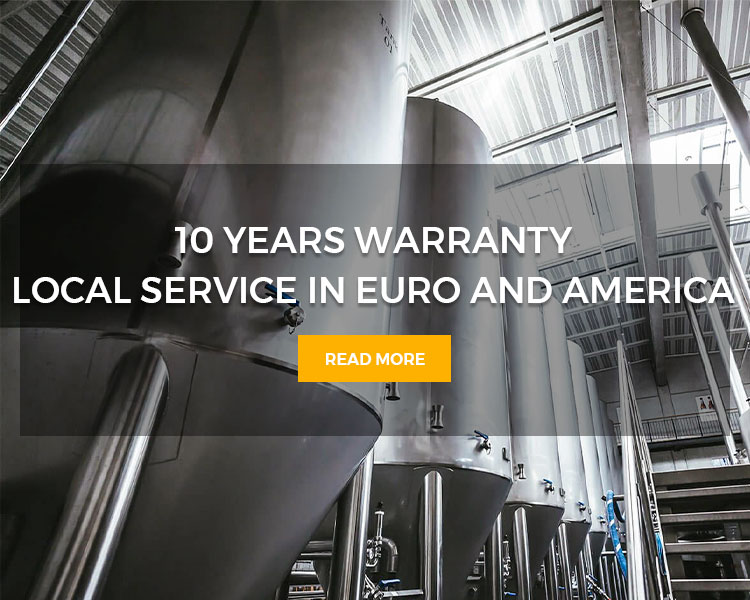Core Distillery Machinery Components
Commercial Distillery equipment plays a vital role in transforming grains, fruits, and other plant materials into alcoholic beverages. These specialized Distillery machines are designed for durability, hygiene, and precise operation to ensure the production of high-quality spirits.After screening and investigation brewery equipment It is likely to become a new force driving economic development. https://www.cnbeerequipment.com/
The importance of investing in high-quality whiskey distillery equipment for sale cannot be overstated. Here are a few reasons why high-quality equipment is crucial in alcohol production:
1. Consistent Product Quality:
High-quality Distillery machinery helps produce spirits with consistent taste and quality. This consistency is crucial for building a loyal customer base and maintaining a brand’s reputation.
2. Workplace Safety:
High-quality distillery equipment for sale provides a safe working environment for employees. Properly functioning equipment reduces the risk of accidents and injuries, fostering a healthy and productive workplace.
3. Cost-Effectiveness:
Investing in high-quality Distillery machinery for sale can save money on energy and raw materials in the long run. Efficient equipment uses less energy and minimizes waste, ultimately saving the distillery money.
4. Regulatory Compliance:
Whiskey Distillery machinery must comply with strict alcohol production regulations. High-quality Distillery equipment is designed to meet industry standards and ensure compliance with legal requirements. Core equipment in a distillery includes fermentation tanks, where yeast converts sugar into alcohol, and stills, which separate alcohol from other components by heating and cooling the liquid. These pieces of equipment are crucial to the distillation process and play a key role in producing high-quality spirits. When setting up a distillery, understanding the core mechanical components is crucial for efficiently producing high-quality spirits. Two main areas of focus are the mashing and fermentation equipment and the distillation system.
Commercial Distillery Equipment
Mashing and Fermentation Equipment:
1. Mashing Tanks:
These large brewing vessels are used to mix and heat grain with water. Proper mashing is crucial for converting starches into sugars, which are then fermented into alcohol by yeast.
2. Grain Mills:
These machines grind the grain to the appropriate size to ensure maximum sugar extraction during the mashing process.
3. Fermentation Tanks:
These stainless steel fermentation tanks contain yeast, which converts sugars into alcohol. Temperature control is crucial here; equipment like 500-liter brewing plant is equipped with advanced temperature control systems torevent yield loss and maintain product quality.
4. Cleaning-in-Place (CIP) Systems:**
These systems are crucial for maintaining the sanitation of fermentation tanks and other equipment and preventing contamination.
Distillation Systems:
1. Pot Stills:
These round copper stills with a neck are ideal for distilling spirits such as whiskey, rum, and brandy. They impart a rich, distinctive flavor, but are less efficient for batch production.
2. Columns distiller:
These tall columns with trays are used to produce vodka, gin, and light rum. They produce a clean, neutral distillate and are more suitable for continuous production.
3. Condensers:
These components cool alcohol vapors back to a liquid state, a critical step in the distillation process.
4. Alcohol Safety Containers:
These are used for testing and sampling alcohol in compliance with legal regulations.
5. Reflux Devices:
Optimize the distillation process by improving the separation of alcohol, contributing to the purity and quality of the final product.
Cost Considerations:
Whiskey Pot stills range in price from $10,000 to over $500,000, depending on their size and complexity.
Column stills, due to their high efficiency and complexity, can cost from $30,000 to over $1,000,000.
Investing in high-quality mashing and fermentation equipment, as well as efficient distillation systems, is crucial for producing high-quality spirits and reducing waste. By understanding these core components, distillers can optimize their production processes and create superior products.
In short, investing in high-quality 500L distilling equipment is crucial for ensuring consistent alcoholic beverage quality, ensuring workplace safety, saving costs, and complying with regulations. By prioritizing high-quality equipment, distilleries can optimize their production processes and provide consumers with exceptional spirits.